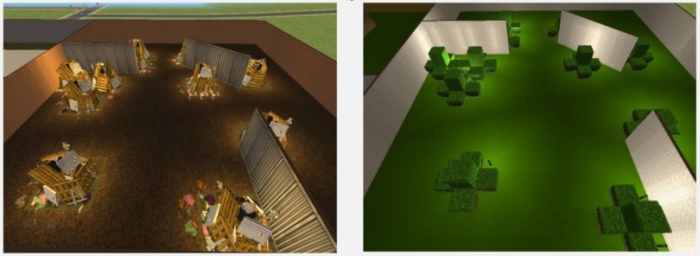Most of us know it - that weird, sudden feeling of experiencing something not for the first time.
It's called déjà vu - French for "already seen" - and it's an uncanny feeling. But according to new research, that's all it is. Just a feeling.
There have been many explanations, including the supernatural (that the person visited the location in a past life), the peculiar (that the person visited the location in a dream) and the worrying (the person is having a small frontal lobe seizure).
But the most accepted explanation is that it has to do with memory. Much like a word can be on the tip of your tongue, a memory could be on the tip of your mind - there, but not quite accessible.
This is what Anne Cleary, a cognitive psychologist at Colorado State University, has previously investigated through her research.
In a new paper, she's now demonstrated that the feelings of premonition that accompany the phenomenon are just that - feelings.
A person experiencing déjà vu is no more likely to accurately predict what they're going to see around the next corner than someone who is blindly guessing.
Other scientists have established that déjà vu is tied in with memories as well, but Cleary's specific hypothesis, demonstrated in previous research, is that familiarity is a key trigger.
A street layout, spatial layout, or even a face might look similar to a different place or layout or face, without a specific memory immediately coming to mind.
"We cannot consciously remember the prior scene, but our brains recognise the similarity. That information comes through as the unsettling feeling that we've been there before, but we can't pin down when or why," Cleary said.
"My working hypothesis is that déjà vu is a particular manifestation of familiarity. You have familiarity in a situation when you feel you shouldn't have it, and that's why it's so jarring, so striking."
According to Cleary, anecdotal reports show that déjà vu is often accompanied by a strong feeling of being able to predict the future. And, in a 1959 experiment that induced déjà vu by stimulating the temporal cortex, participants also reported feeling a sense of premonition.
Now, building on previous experiments, Cleary has put 298 people to the test. The team built environments in the computer game The Sims - layouts that were spatially the same, but thematically different: for example, a garden and a junkyard.
In other studies, such duplication has proven to induce déjà vu feelings in participants.
 (Cleary et al./Psychological Science)
(Cleary et al./Psychological Science)
In this new study, participants were tasked with watching videos that showed a first-person walkthrough of a series of scenes, each opening with a female voice stating and then repeating the name of the scene, such as a junkyard, or an aquarium.
They were then shown a series of test videos, which were cosmetically different from the study videos, but half of which were laid out exactly the same. At a critical point, the participants were stopped and asked if they were experiencing déjà vu and if they knew what the next turn should be.
Around half of the participants reported feeling a sense of premonition alongside déjà vu - but they were no more likely to hit on the correct answer than participants who chose randomly.
So, that feeling of being able to predict the future just isn't real.
Cleary and her team will be following up the experiment to find out if déjà vu premonition is accompanied by hindsight bias, whereby people become convinced that they knew what would happen after the fact.
The study has been published in Psychological Science.
